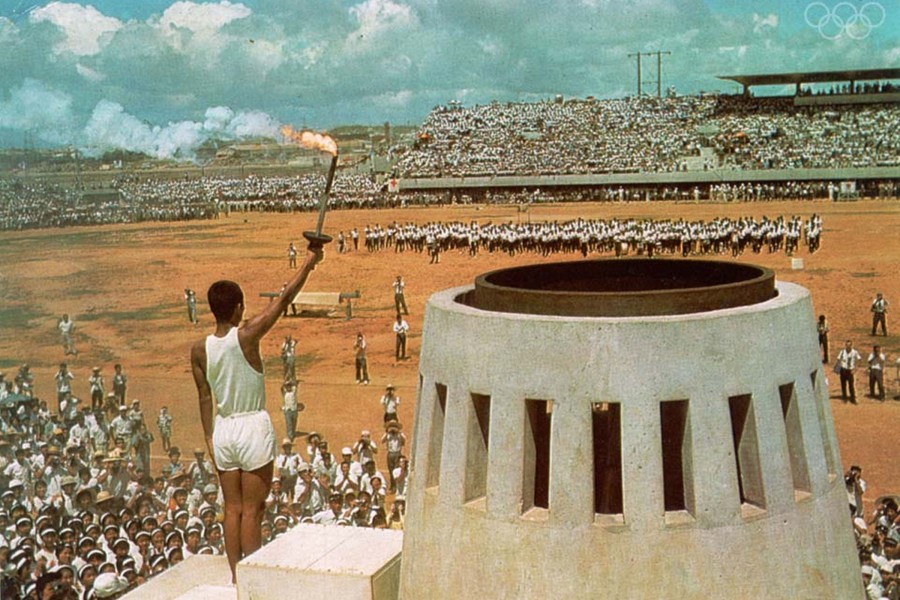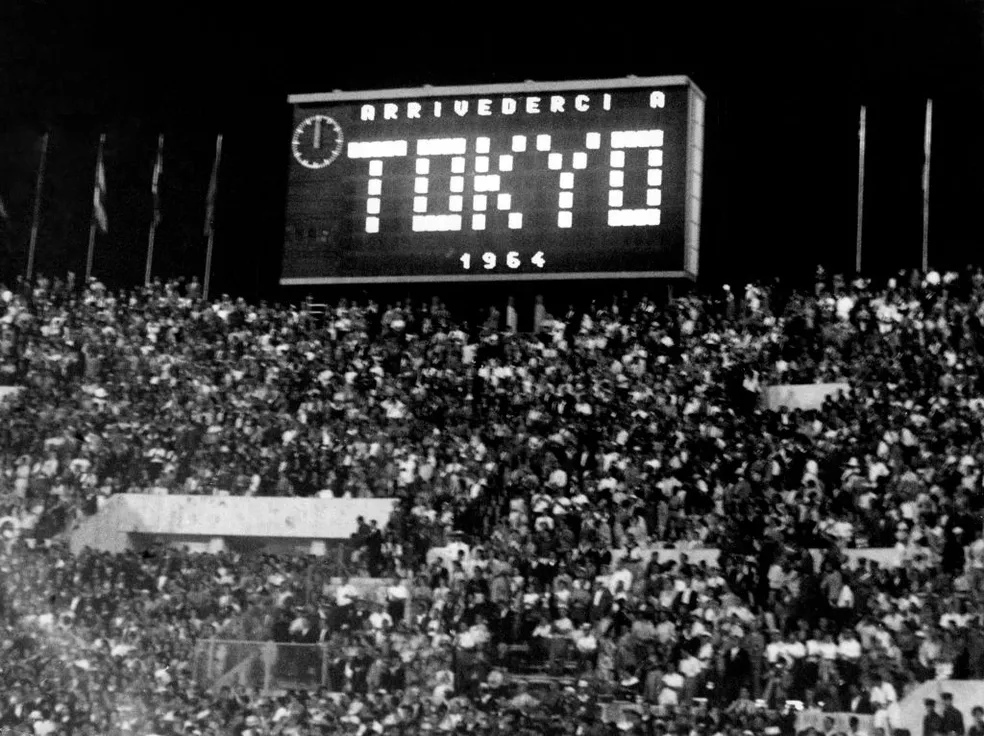The 1964 Tokyo Olympics were a milestone not just for Japan, but for the world. It was the first time the Olympic Games were held in Asia, and the event symbolized Japan's rebirth as a modern, prosperous nation after the horrors of the Second World War.
This article will explore the impact and legacy of the 1964 Olympics for Japan, which, through this event, consolidated its image of innovation and growth.

Table of Content
The Historical Context: Post-War Japan
In 1964, Japan was still recovering from the devastating consequences of the Second World War, which had ended just two decades earlier. The country had been severely affected by the atomic bombings of Hiroshima and Nagasaki and was undergoing an intense process of reconstruction. Hosting the Olympic Games was seen as an opportunity for Japan to reintegrate into the international community and project an image of progress and modernity.
Not only did Japan want to recover economically, but it also wanted to recover its national pride and show the world that it had left militarism behind and become a peaceful, modern and industrialized nation.
Japan's Strategy for the 1964 Olympics
When Japan was chosen to host the Summer Olympics in 1964, it took a strategic approach to ensure that the event was not just a sporting competition, but also a showcase of its progress and development. The Japanese government invested heavily in infrastructure and technology to impress the world.
Among the most notable innovations was the Shinkansen, the famous bullet train, which began operating shortly before the Olympics. This high-speed train, capable of reaching speeds of up to 210 km/h, became a symbol of Japanese technological advancement and revolutionized transportation in the country. To this day, the Shinkansen is globally recognized for its efficiency and modernity.
Another landmark of modernization was the construction of the Tōkyō Tawa, inspired by the Eiffel Tower. The structure, which served as a telecommunications tower, also symbolized Japan's rise as a technologically advanced nation. The combination of modern infrastructure and cutting-edge technology reinforced the image of a country that had reinvented itself.

The Global Impact of the 1964 Olympics
The 1964 Olympics were the first to be broadcast live by satellite to the whole world, allowing spectators from different countries to follow the event in real time. This was a major technological feat for the time and helped amplify Japan's visibility, allowing millions of people around the world to watch the spectacle.
The theme of modernity was central to every aspect of the Games. Japan invested in state-of-the-art facilities, and Tokyo's urban planning was enhanced with new roads, transportation networks and infrastructure improvements. This not only benefited the event, but also provided a lasting legacy for the city.
The Symbology of Peace
In addition to its emphasis on innovation, Japan made a point of promoting a message of peace during the 1964 Games. One of the most symbolic moments was the lighting of the Chama da Paz in Hiroshima. The flame was lit in memory of the victims of the atomic bombing of 1945 and symbolized Japan's commitment to peace and non-violence.
The decision to hold a peace ceremony in Hiroshima was a powerful gesture that reinforced Japan's transformation from a belligerent nation to a peaceful, industrialized nation. The Flame of Peace continues to burn in Hiroshima to this day, as a reminder of the devastating impact of war and the commitment to a peaceful future.

Japan's Modernization and the Legacy of the Games
The 1964 Olympics not only boosted Japan's modernization, but also helped redefine the country's identity on the global stage. Japan stood out as a leader in technology, infrastructure and efficiency, qualities that are still associated with the country today.
The success of the Olympic Games also generated a significant economic boost. Tourism grew, new investments came to Japan, and confidence in the country was restored. From then on, Japan was seen as an example of recovery and innovation.
The city of Tokyo, in particular, benefited from infrastructure improvements. The highways, the expanded subway system and the public transport network were lasting legacies of the Games, which continue to benefit the population to this day. The Shinkansen, for example, remains one of the most efficient and advanced train systems in the world.
Final Thoughts
The 1964 Tokyo Olympics were a watershed event for Japan. The country, which had once been devastated by war, reinvented itself as a modern and technological nation, ready to stand out on the international stage. The Games served as a symbol of recovery and peace, reinforcing the image of an innovative and peaceful Japan.
The legacy of the 1964 Olympics is still felt today, both in the technological innovations that were introduced and the positive impact they had on Japan's infrastructure and tourism. It was a crucial moment in the country's history, marking its triumphant return to the international community.
